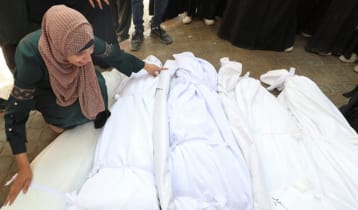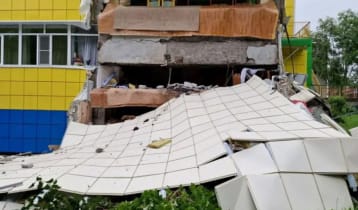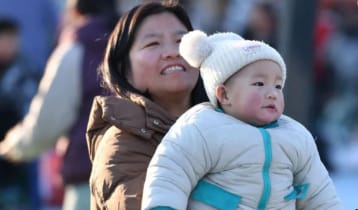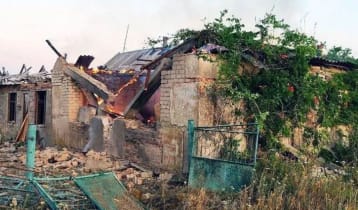Jordan reclaims 2 tracts of land used by Israel
5 || risingbd.com
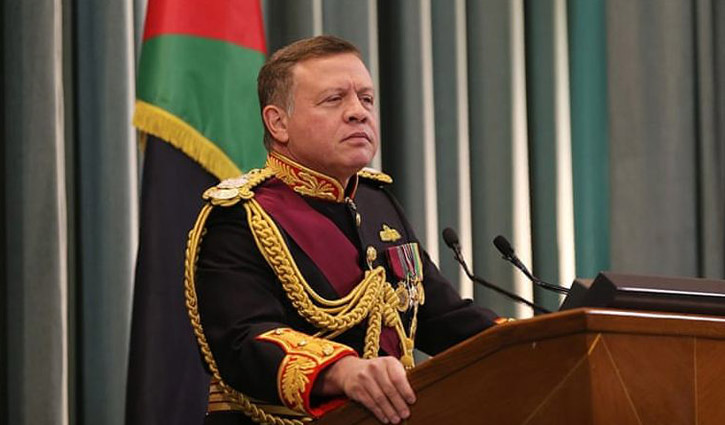
International Desk: Under internal political pressure, King Abdullah II of Jordan said on Sunday that he was cutting off Israelis’ free access to two tracts of land along the border that fall within Jordanian territory, but where Jews historically have had private land use rights.
For nearly a quarter of a century, as part of the 1994 peace treaty between the two former foes, Israeli farmers and tourists have enjoyed the fruits and picturesque attractions of the areas. One of them, a pocket of land about 10 miles south of the Sea of Galilee, sandwiched between the Jordan and Yarmouk Rivers, is known in Hebrew as “the Island of Peace.”
“Al-Baqura and Al-Ghamr have always been our top priority,” King Abdullah said, referring to the two areas by their Jordanian names.
The royal decision was confirmed in an emergency session of the Jordanian cabinet at which the king said Jordan would “exercise full sovereignty” over its land.
The decision came as an unwelcome surprise to Israelis, but was not likely to touch off any immediate diplomatic crisis. Under the terms of the peace treaty, the special arrangement was to remain in force for 25 years and could be renewed automatically or terminated with one year’s notice by either party. The deadline was coming up at the end of the week.
Nevertheless, the decision exposed underlying tensions in the region.
Though the Israeli-Jordanian peace has proved firm and lasting, it has not been popular with ordinary Jordanians, who are still struggling economically.
Small protests have been held in Jordan in recent days over the fate of the two areas of land, and scores of legislators signed a petition to cancel the arrangement, in what may also be meant as a distraction from a new tax bill.
Prime Minister Benjamin Netanyahu of Israel said his country would enter into negotiations with Jordan over the possibility of extending the current arrangement, as stipulated by the treaty.
Speaking at a state memorial service for Prime Minister Yitzhak Rabin, who was slain by a Jewish extremist a year after signing the treaty with Jordan, Mr. Netanyahu emphasized its strategic value. “Without a doubt,” he said, “taking a broad view of the agreement in its entirety, it is a very important asset, important and dear to both countries.”
Israeli-Jordanian relations have also been strained by years of impasse in the Palestinian peace process.
Last year a confrontation involving an Israeli guard at Israel’s embassy compound in Amman, which left two Jordanians dead, led to a monthslong diplomatic standoff.
At the time, Jordan was infuriated over Israel’s placement of metal detectors at the entrances to the Aqsa Mosque Compound in Jerusalem’s Old City. They were removed under pressure from Jordan, the custodian of the shrine.
Al-Ghamr, one of the two areas Jordan is reclaiming, is currently farmed by members of Zofar, an agricultural cooperative village in the Arava region of southern Israel.
Eitan Lipszyc, the coordinator of the cooperative of 98 families, said nobody had raised the possibility with the villagers that a cancellation of the arrangement was even on the agenda.
“I am very surprised,” he said by phone. “I don’t even known what to think. Nobody predicted it.”
Mr. Lipszyc said it would be a “catastrophe” for the village, which grows vegetables on roughly 370 acres over the Jordanian side of the line.
The other site, also known as Naharayim, or two rivers in Hebrew, has become a popular destination for Israeli visitors who come to enjoy the views and the history of the area.
Its natural beauty was overshadowed when, less than three years after the signing of the peace treaty, a Jordanian soldier went on a shooting rampage that killed seven Israeli schoolgirls visiting the border area. The area contains a memorial site for the victims of the 1997 attack.
Gidon Bromberg, the Israeli director of EcoPeace Middle East, a trilateral organization that brings together Jordanian, Palestinian and Israeli environmentalists to deal with shared problems, said the Jordanian decision, and the expected negotiations, could provide an opportunity.
Proposing a joint peace park that would straddle Jordanian and Israeli territory, he argued that a more reciprocal arrangement in the area could help develop what he called its “tremendous tourism potential.”
Source: New York Times
risingbd/Dhaka/Oct 22, 2018/AI
risingbd.com





